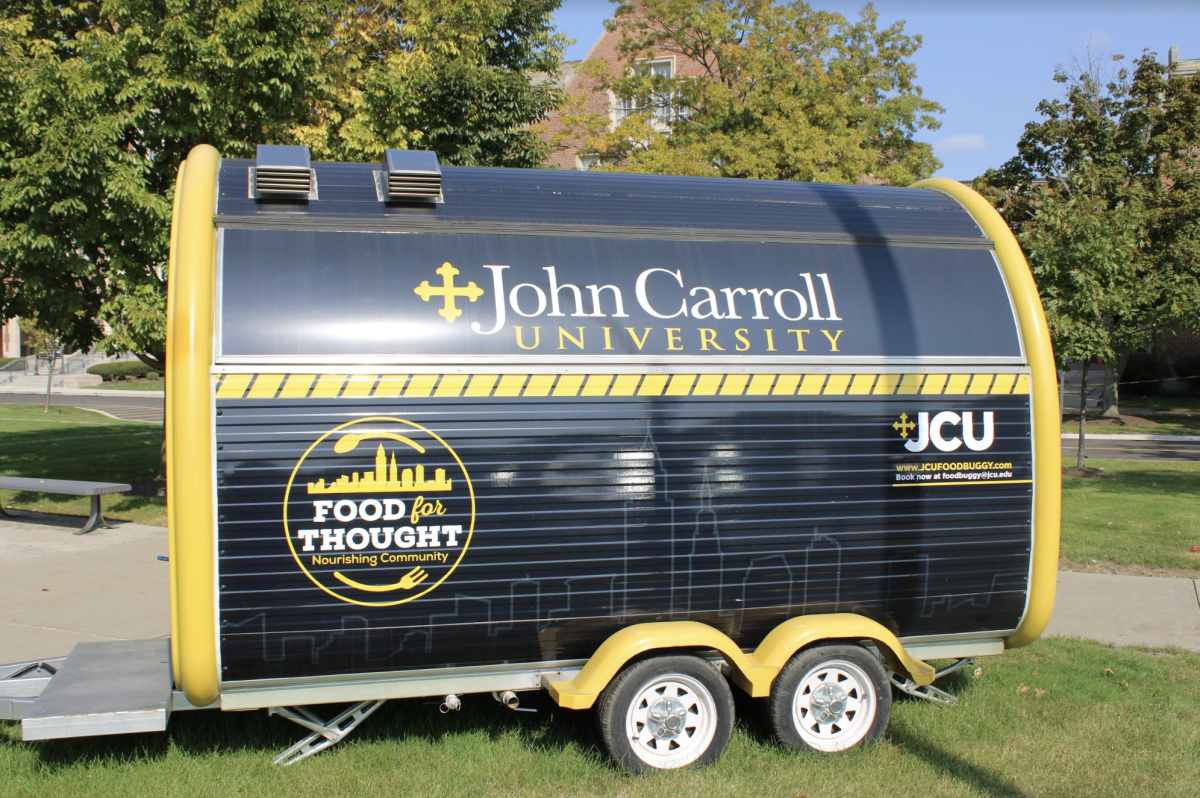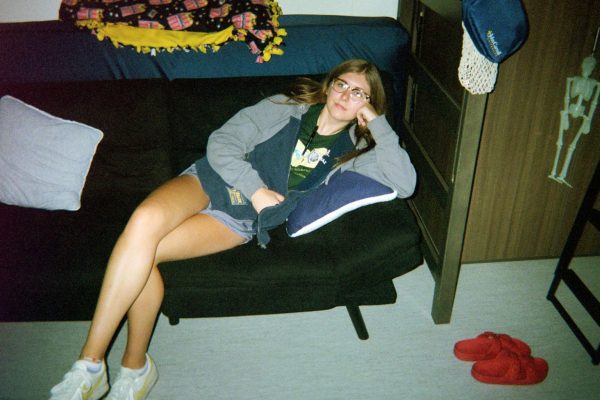The Food Buggy started with Sr. Katherine Feeley, SND and director of the Center for Service and Social Action, and her vision of a JCU food truck. Working with Al Miciak, president of the university, who was the dean of the Boler College of Business at the time, the two worked together to create the Food Buggy with two goals in mind.
First, it is meant to allow students to run a business and learn skills such as marketing, financing, managing people and scheduling. Students can take a class each semester to run the Food Buggy and have this experiential learning opportunity.
However, the bigger purpose is to generate profits and then use that money to feed the unhoused and hungry in Cleveland.
Doan Winkel, the Kahl Chair in Entrepreneurship and current overseer of the Food Buggy, shared more about this social justice aspect. “It’s a little bit more than just feeding them because what we want to be able to do is give them high-quality food and, if we can, give them choices on the menu,” he said. “It gives them dignity.”
However, the Food Buggy has a rough time getting off campus due to transportation issues. Each semester a few community events have been possible, but more work needs to be done to address these issues. Once this is achieved, the Food Buggy can partner with other companies and groups to generate revenue and turn around the money towards their social mission.
Yet, the Food Buggy has provided food to events on campus, such as at tailgating events. Winkel shared more about the Food Buggy’s most recent partnership on campus, saying “We partnered with the Steak Club Foundation. They had a sandwich that they created and they came in and made the sandwich, and then they [students} sold that.”
“It’s a nice partnership because a lot of the folks behind that group are John Carroll alum. We’re moving in a good place of now looking to develop partnerships that support the mission of the Food Buggy,” Winkel said.
These partnerships are vital to the Food Buggy since food cannot be made inside of it, only stored. This is a challenge, but also provides students with an opportunity to think outside of the box for ways to provide food.
Winkel also shared hopes to collaborate with the university’s Labre program. “We’re playing in the same space, so it makes sense to collaborate,” he said.
Winkel emphasized that the Food Buggy is still in its start-up phase, but that those that are running it want it to be used. The next time you are hosting an event on campus, consider partnering with the Food Buggy!




